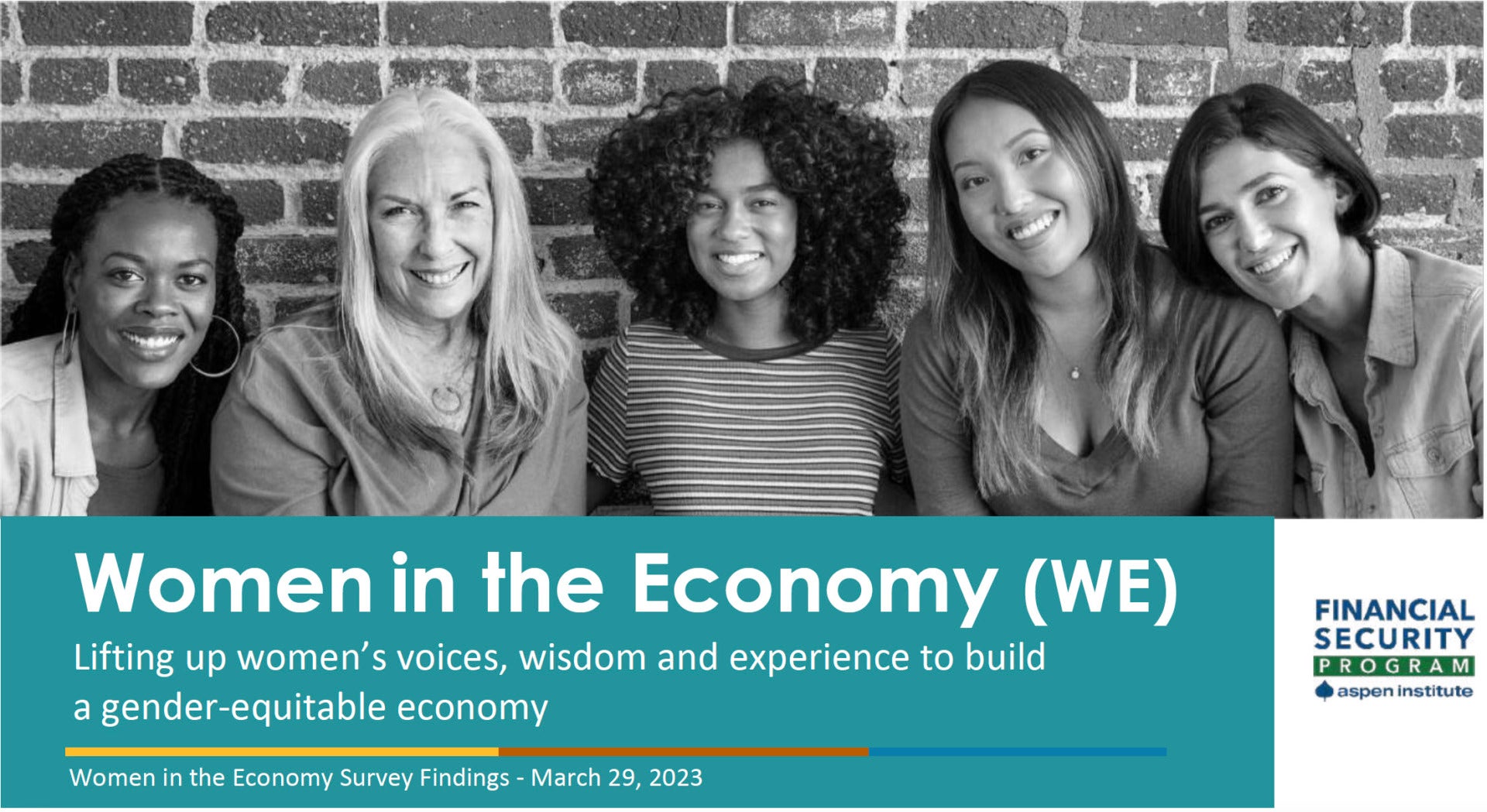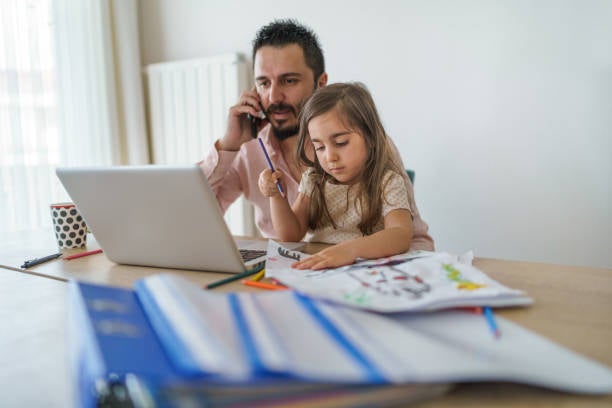Women in the Economy (WE) – a research and action project based at the Aspen Institute Financial Security Program (Aspen FSP) – is designed to answer the question: What would the economy look like if it were designed to work for women? [1] The team – WE Founder and Aspen FSP Entrepreneur-in-Residence Heather McCulloch and Senior Research Partner Céline Apollon – is taking a deep dive into women’s economic lives to obtain their insights about the causes of their economic insecurity, what they see as the most promising solutions, and their vision for a gender-equitable economy. The goal of the research is to lift up women workers’ voices and galvanize solutions that support women to strive, thrive, and reach their full potential.
Approach:
In the spring of 2022, the team interviewed with more than 30 national and state gender and racial equity leaders to gain their insights on the top challenges facing working women and promising policy solutions. In the summer and fall, they conducted 127 in-depth, one-on-one interviews with working women across their many, intersecting identities – race and ethnicity; gender identity and sexual orientation; income, age, marital, parental, and disability status; experience with incarceration and/or economic or physical abuse – with a focus on women who are economically marginalized due to one or more identity, in addition to gender. Three out of four interviewees were women of color, and the majority were in a household earning less than $50,000.
In the fall, the WE team used the interview findings to design a national survey with the national nonprofit SaverLife. Saverlife ran the survey from December 13th, 2022 to January 3rd, 2023 and received 1,224 responses. More than two thirds of respondents were women of color, and the majority were earning less than $50,000.
The WE team is now sharing findings with nonprofit, philanthropic, public, and private sector leaders to galvanize action around solutions. Throughout the process, WE has been committed to valuing and compensating women for their time and insights and most importantly, to maximizing opportunities for them to tell their own stories.
Acknowledgements:
The WE team is grateful for the deep and ongoing support of Aspen FSP Co-Executive Directors Joanna Smith Ramani and Ida Rademacher; advisors Aimee Allison (She the People), Dr. Mariko Chang (author and consultant), Erin Currier (W.K. Kellogg Foundation) Melany De La Cruz-Viesca (UCLA Asian-American Studies Center), Noreen Farrell (Equal Rights Advocates), Christy Finsel (Oklahoma Native Assets Coalition/ONAC), Angela Glover Blackwell (PolicyLink), Naomi Goldberg (Movement Advancement Project), Surina Khan (Women’s Foundation of California) and Dr. Lisa Servon (University of Pennsylvania); and to our funders: AARP, Annie E. Casey Foundation, Blue Shield of California Foundation, Chavez Family Foundation, Friedman Family Foundation, S&P Global Foundation; and individuals: Robert Friedman, Rich Rainaldi and Martha Records. We cannot name the hundreds of women across the country who have shared their insights, networks, love, and support to make this project possible, but we thank you!
We would like to express our deep appreciation to SaverLife for advising the WE team throughout the research process, connecting us with their members, and administering our national survey.
[1] The WE project uses a definition of “women” that is inclusive of cis-, transgender, and nonbinary people, and we have welcomed all LGBTQIA+ people who want to participate in our research. Our definition of “working women” includes women who are providing care without compensation.
Related Links
Powered by MomsRising, We Act Radio
Past Webinar: Beyond Surviving to Thriving: Building a Gender Equitable Economy Based on Women’s Lived ExperienceCo-hosted by the Asset Funders Network, Aspen FSP, Care for All with Respect and Equity Fund, Economic Opportunity Funders, and EITC Funders Network
Co-hosted by Aspen FSP and The Century Foundation
AARP International Blog
Ms. Magazine Article
The Week
“Understanding the Gender Wealth Gap, and Why it Matters”, The Future of Wealth: Brief Essays on the Best Ideas to Build Wealth—For EveryoneFederal Reserve Bank of St. Louis and the Aspen Institute, with Mariko Chang, Ana Hernández Kent, and Heather McCulloch
FedCommunities
[Video] What If the Economy Worked for Women?
At SheMoney Summit 2024, Heather McCulloch shares vital research why building a gender-equitable economy is an economic imperative.


